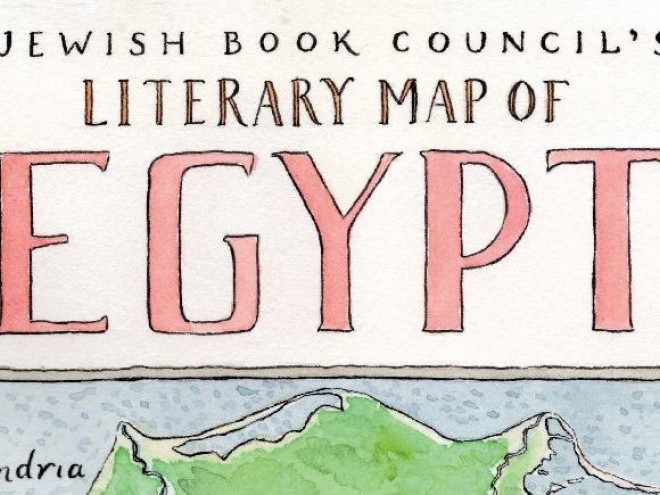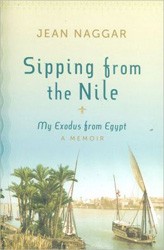What happens to people forced into exile? How do different individuals react and deal with their new status as immigrants? Jean Naggar’s Footprints on the Heart explores the decades long story of two families who are thrust into such life altering events.
Aldo and Eliane Mizrahi and their seventeen-year-old son, Sol, are wealthy Egyptian Jews living a privileged life in Cairo where their ancestors have thrived for generations. When Nasser annexes the Suez Canal in 1956 and Israel sides with the British and French, Egyptian Jews find themselves in a precarious position. The tension-filled terrifying atmosphere culminates in the Jews’ expulsion. They must leave their homes and lifestyles with only a suitcase and a passport that will soon be revoked. The Mizrahis spend a miserable, anxious, and unnerving time in a rundown Parisian hotel before eventually locating to New York. Eliane finds purpose and talent in her work as she steadily and patiently succeeds and embraces her new life. Aldo is broken and is never able to cope with what he has left behind. Sol, a great believer in the American can-do spirit, thrives in his new country.
Jamila, the eldest of Salwa and Sadik’s many children, leads a simple poor life in her tiny Egyptian upper Nile village. She spends her days tending to the other children, watching the goats with her friend Walid, and roaming the Nile’s banks with her brother Ali, all the while knowing she will be promised to an old man in marriage, endure harmful bodily rites, and live a life of little hope or mobility.
Malvina, an American modeling agency owner, visits Jamila’s village while sightseeing. She immediately recognizes the modeling potential in the lovely green-eyed exotic beauty of Jamila. Malvina champions Jamila’s cause and persuades her parents to let her go back to New York with her. Salwa recognizes the opportunity for a different life being afforded to her daughter. Jamila is troubled, terrified, and yet excited by what lies ahead. She spends many years wondering about her former life, family, and friends even as she acquires a new glamorous existence in exile.
Jamila (now renamed as the famous model, Jasmine) and Sol both go on to great success. Their stories, which more than coincidentally began in Egypt, later intersect and mesh by both happenstance and fate. Their connections lie at the heart of the plot.
Other characters, epitomizing the immigrant experience, are introduced throughout the novel. Many succeed and prosper through sheer determination and persistence while others flounder and struggle with the trauma of losing their past lives.
The author was born and raised in Egypt and the novel mirrors some of her own experiences. Her previous book, Sipping from the Nile, chronicles her life in Cairo. Readers will enjoy the historical content of the Jewish Egyptian experience, the years of Farouk and Nasser, the beginnings of the Muslim Brotherhood, the Suez Canal crisis, and the once hopeful Arab Spring. Naggar also addresses the class conflicts in Egyptian and American societies and their repercussions. A useful glossary of Egyptian terms and words is also included.
The beautiful language and extensive descriptive details evoke the sights, smells, and tastes of old Cairo, Paris, and New York. There are harrowing scenes of the chaos playing out on 9/11 at the World Trade Center and the terror of being caught in Tahrir Square when the Arab Spring demonstrations turn deadly. There are also fun juicy items about the New York social scene, the modeling industry, and the world of fashion.
This is a richly woven and moving story. At times, the plot may seem a bit too predictable, but the characters’ imperfect lives and their truths provide the reader with an emotionally gripping and satisfying storyline.
This is a narrative of loss and hope and love and strength.
Renita Last is a member of the Nassau Region of Hadassah’s Executive Board. She has coordinated the Film Forum Series for the Region and served as Programming and Health Coordinators and as a member of the Advocacy Committee.
She has volunteered as a docent at the Holocaust Memorial and Tolerance Center of Nassau County teaching the all- important lessons of the Holocaust and tolerance. A retired teacher of the Gifted and Talented, she loves participating in book clubs and writing projects.




